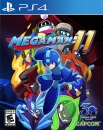heavenmercenary01 said:
TheBraveGallade said:
nintendo basically checked sony by making the switch.
a dedicated handheld would either be too weak compared to the switch, or to expensive to justify being 'only' a handheld (last gen showed this, 250 is too expesive for a dedicated handheld to the point nintendo did an unprecidented year 1 MASSIVE price drop).
If they follow nintendo on the hybrid concept, thats leaving the power hungry western devs and users soly to microsoft.
|
So, the choice was to leave japan behind isn't it?
|
It was both. Nintendo trapped Sony between a rock and a hard place; the 8th gen showed no first party can maintain a strong supply of software to separate portable and home console lines any more, so Sony's options were:
(1) Continue to try to support two lines and have one, their handheld, be pretty much guaranteed to fail.
(2) Make just a hybrid like Nintendo but lose a huge chunk of the core Western home console audience in the process.
(3) Abandon the handheld sector.
They chose option 3, which while the least costly choice still put them at a significant disadvantage in Japan. They then compounded this disadvantage by shifting their first party software almost entirely towards Western tastes; not necessarily a bad decision considering the West is a bigger market than Japan, but it has worsened their decline in their home country.
Last edited by curl-6 - on 03 January 2021






















































